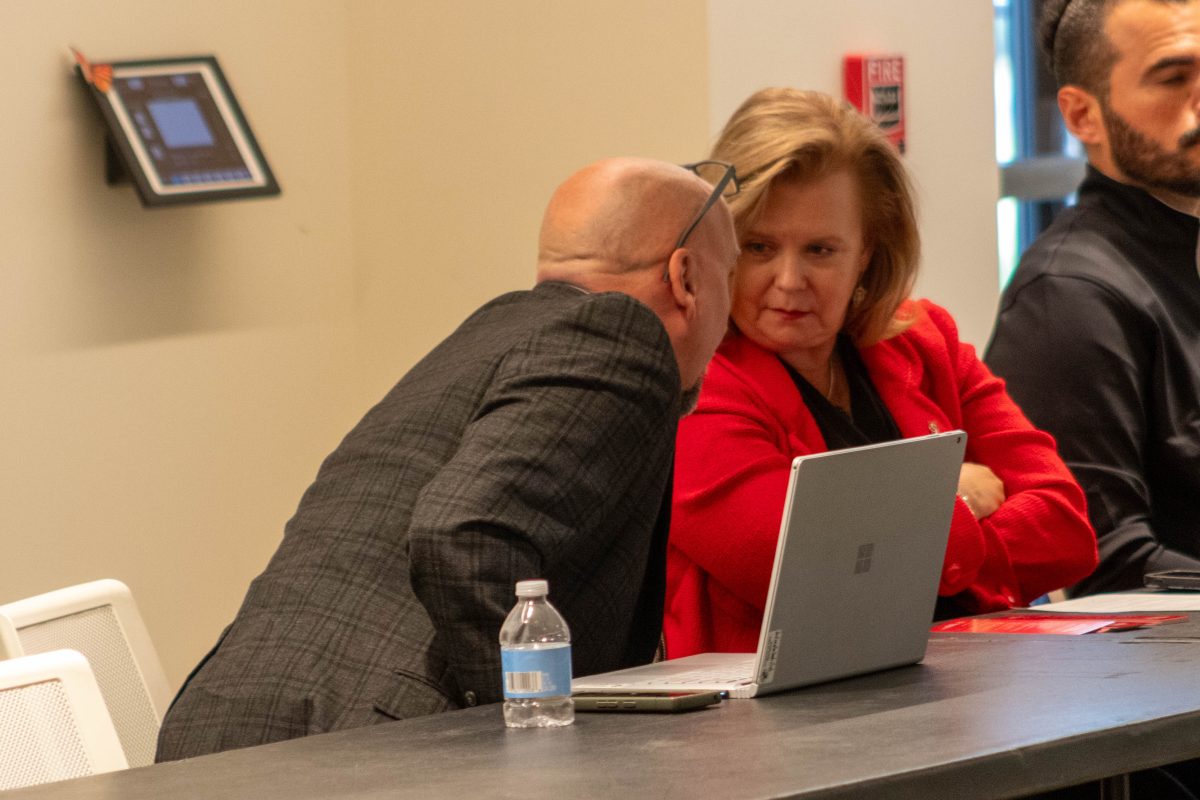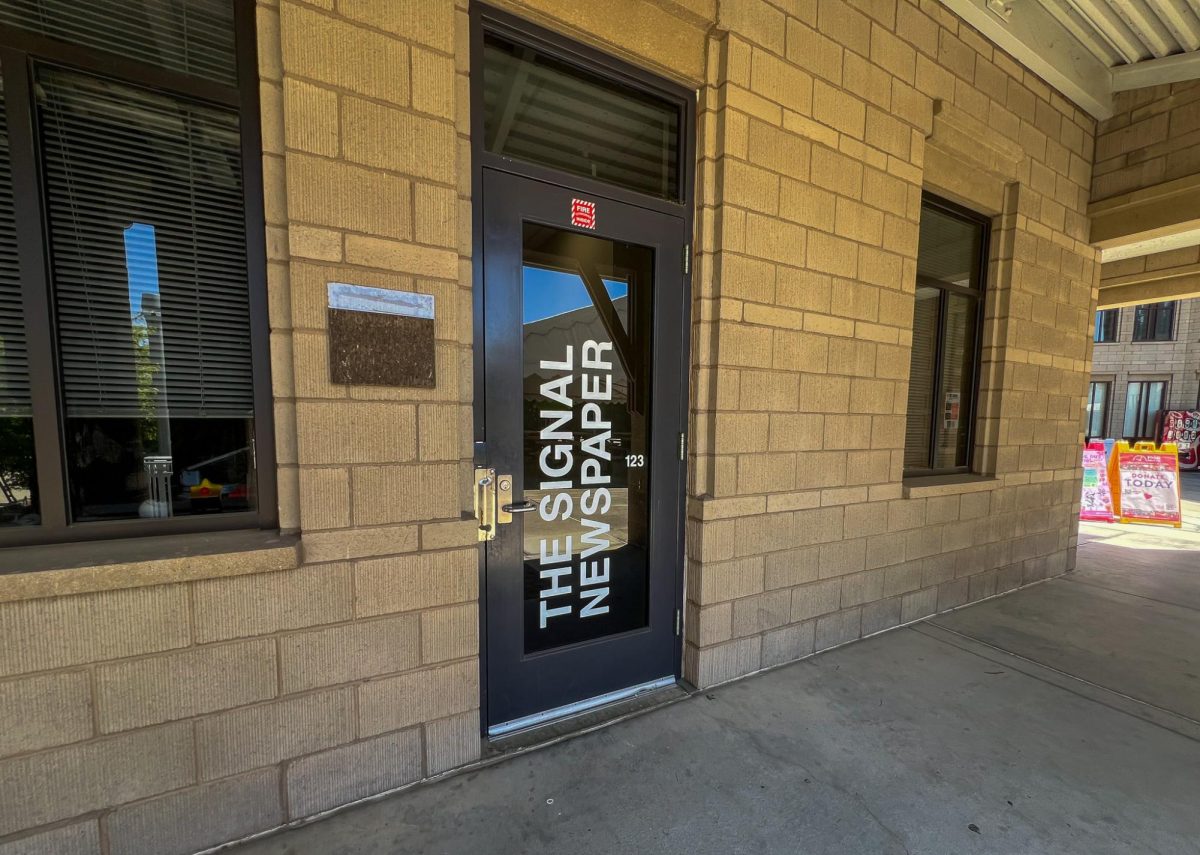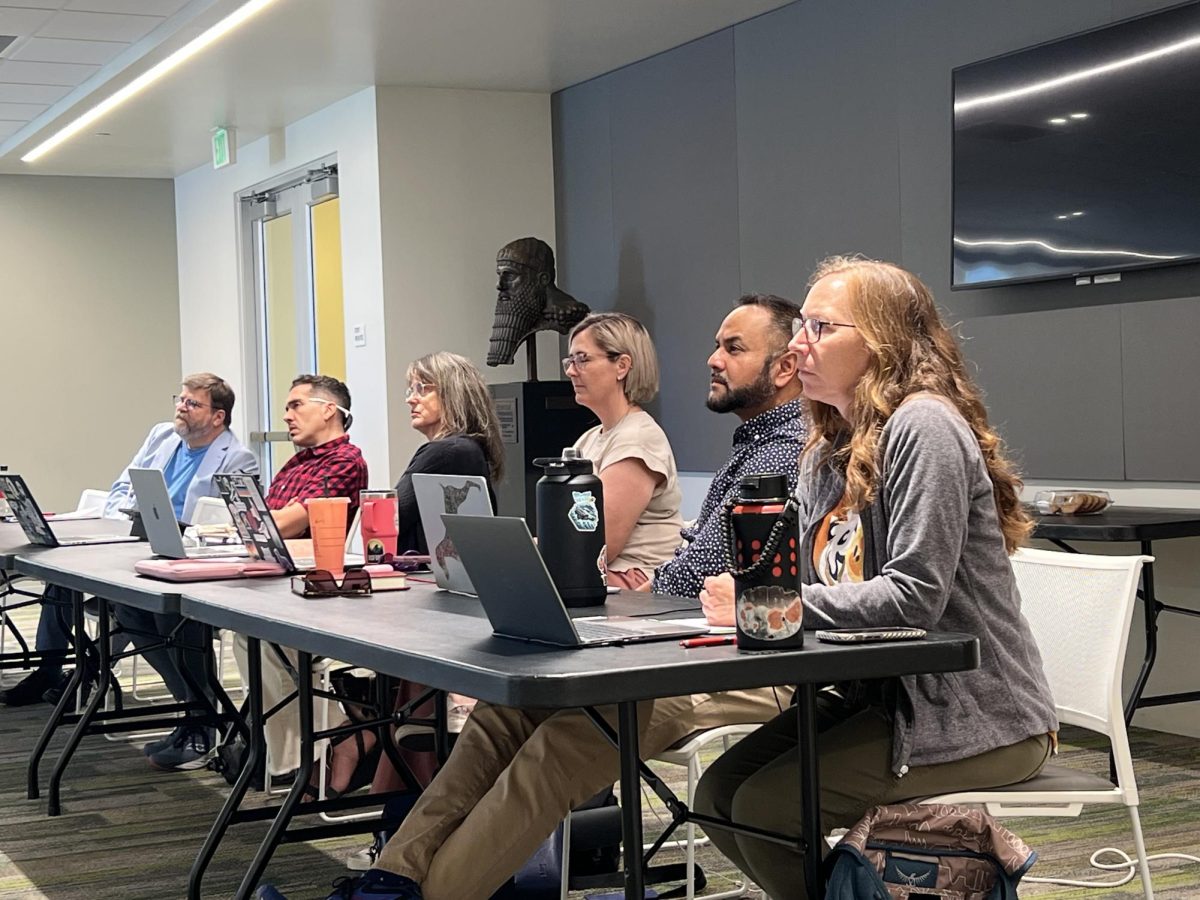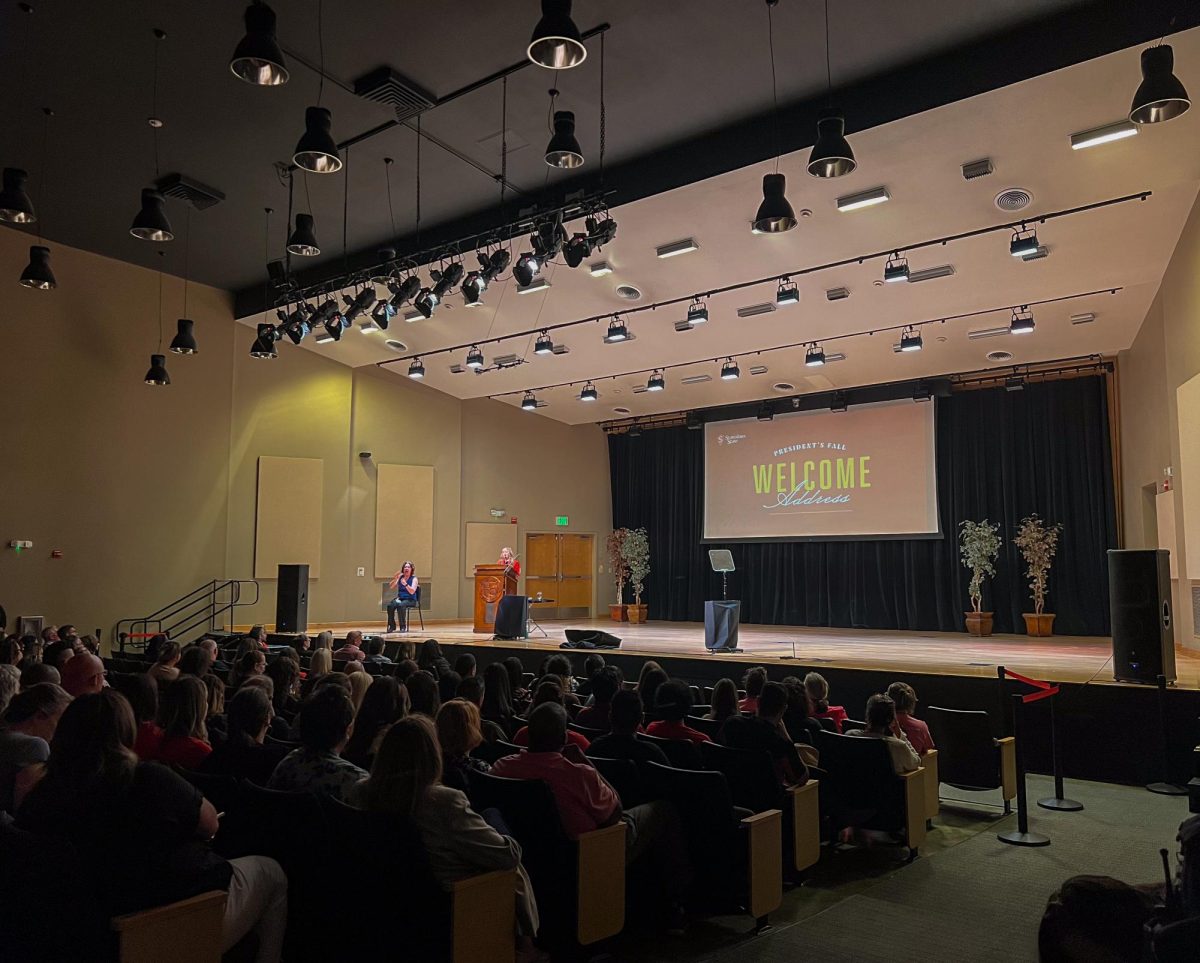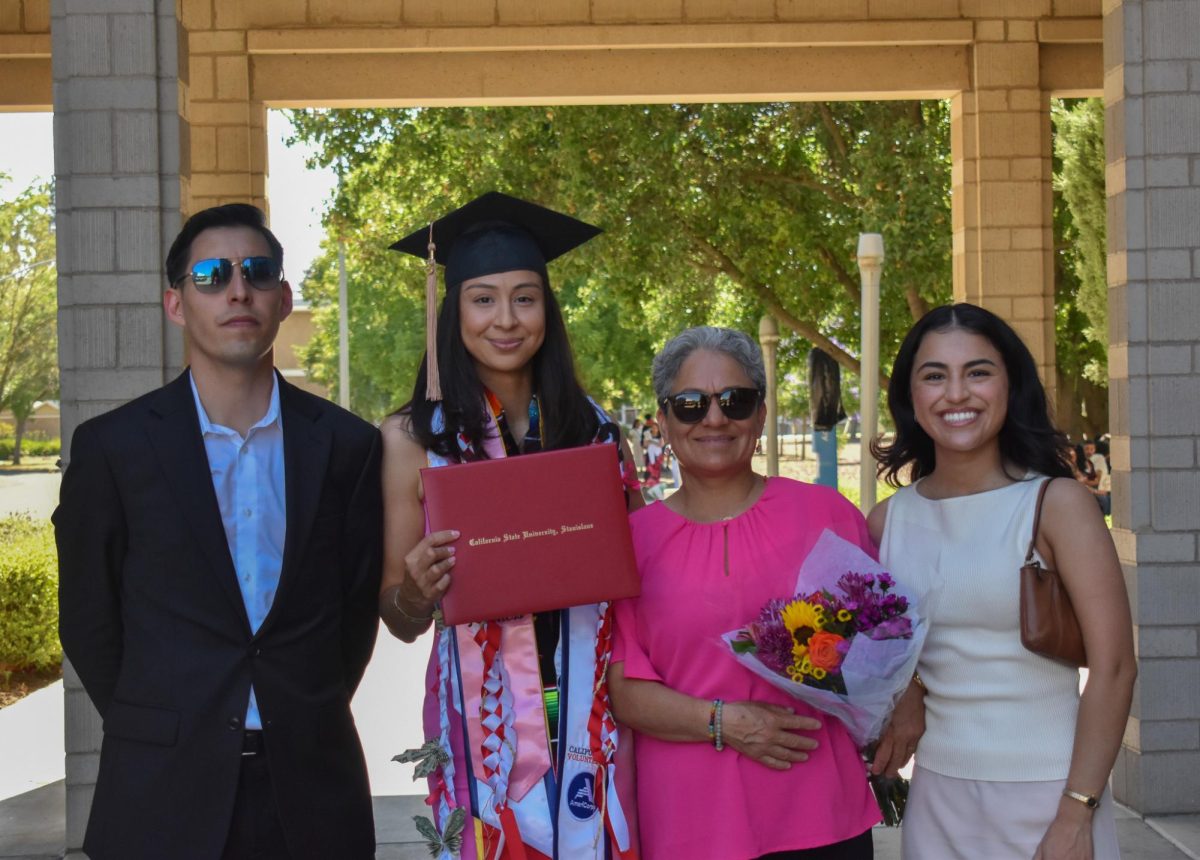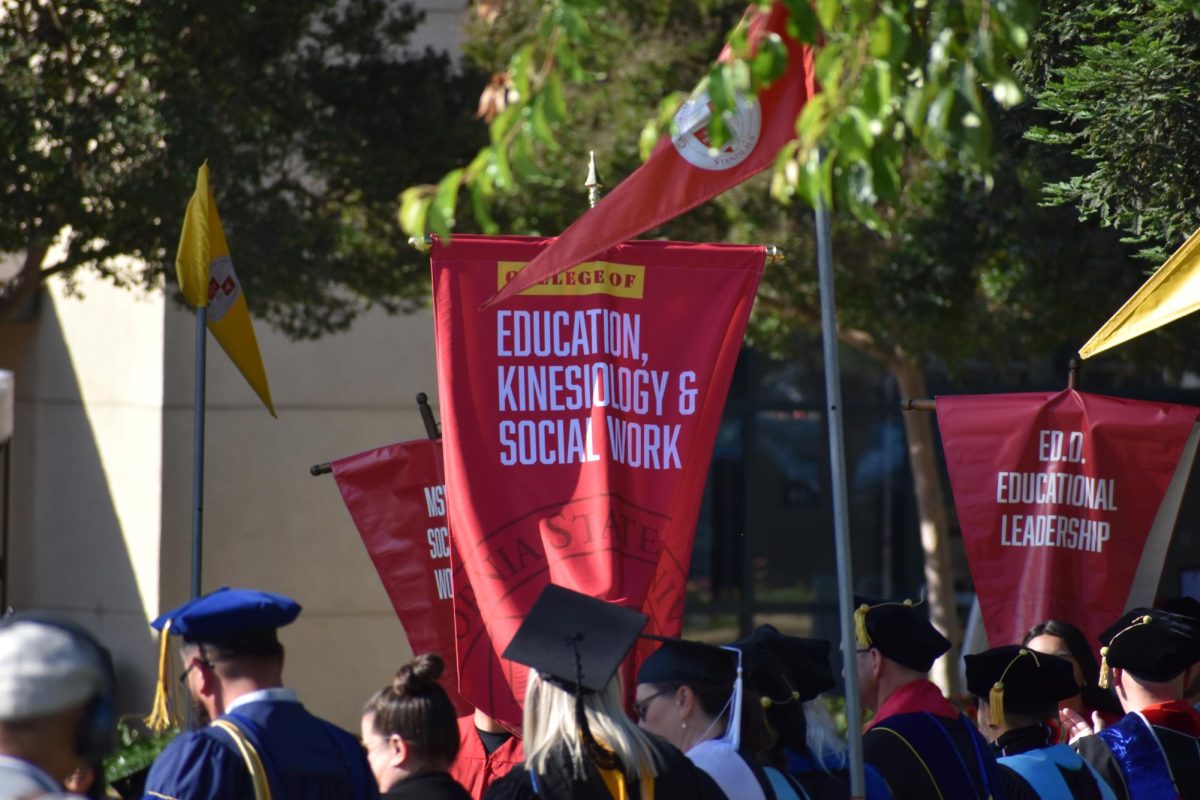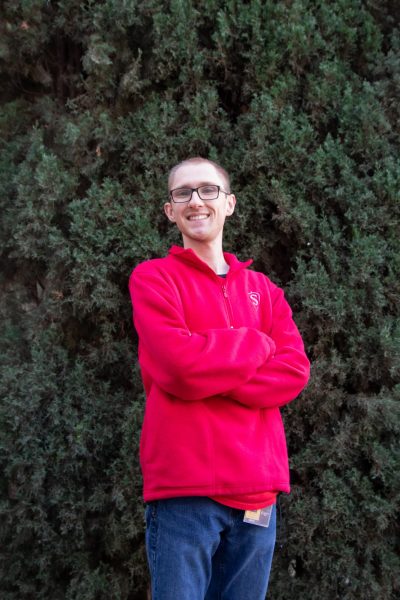At today’s Academic Senate meeting, the Senate Executive Committee (SEC) made a statement against planned cuts to faculty and staff being made by the university administration in preparation for an expected budget shortfall next semester.
The Senate also heard an address from the President about the successes the university saw throughout October, and also passed a resolution to implement a new Master of Science program for the Biological Sciences.
Senators Debate with Administration Over Proposed Budget Cuts That Would Let Go Faculty and Staff and Increase Course Caps
In today’s session, the SEC called for a committee composed of faculty and staff to audit and deliberate on budget decisions, which sparked much back-and-forth between the Provost and the President and Senators who feel the proposed cuts would be detrimental to students and their learning.
Senator Steven Filling, speaking on behalf of the SEC, says that the actions that have been recommended to handle the budget shortfall in the spring semester will have a negative impact on the services offered at the university, asking both faculty and staff to do “a lot more with a lot less.”
“Canceling sections after our lowest paid lecturers have made commitments to teach these classes is cruel. Canceling sections will not solve a $12.1 million budget shortfall, but it will create chaos for students, staff and faculty,” Filling said, reading from the SEC’s written statement. “Our faculty are being asked to increase their workload significantly, and our staff are asked to shoulder significant extra duties. That will not produce a sustainable learning environment. We can and must do better.”
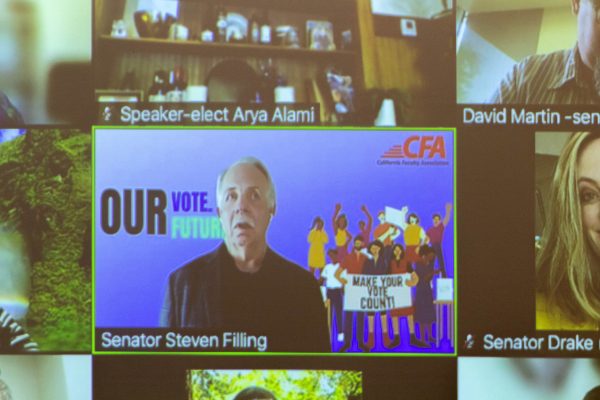
The SEC reports that Deans across the university’s colleges have given directives to reduce the number of courses being offered, unemploy a number of part-time lecturers, increase course caps, reduce the number of support staff, and reduce assigned time for faculty.
Provost Richard Ogle and President Britt Rios-Ellis both responded to the SEC’s statement, agreeing with their core argument that budget cuts should avoid harming student success, but that there are difficult decisions that need to be made.
President Rios Ellis wanted to dispel the notion that the Chancellor’s Office has a wealth of resources available that they’re withholding.
“As many rocks as I turn over, those resources aren’t there,” the President said, “We’re in a new reality check as an entire academic system.”
“We are doing everything we possibly can to think about new revenue sources,” she continued. “We’re trying to communicate as much as we can, but I don’t know another way, I don’t have a magic wand.”
Senator Dave Colnic, speaking in his capacity as CFA Chapter President, replied that the CSU was given a budget increase last year and was given a mandate by the state of California to use its reserves to supplement its budget issues.
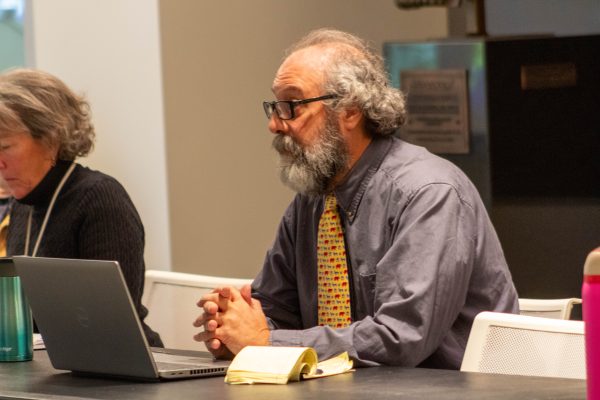
He says that the President and the Provost have a voice and need to “speak truth to power” and demand that the Chancellor’s Office fulfill their lawful obligations and meet the terms of the CSU’s budget increase.
Senator Filling also doubts the reports from both the CSU and CSU Stanislaus administration regarding their surplus and the allocation of their budget.
“Speaking as an accountant,” Filling said, “I don’t know if I trust those numbers.”
President Reports October’s Successes and Lists Efforts to Raise Enrollment and Funds
President Rios-Ellis reported that October was a “really great month” for Stan State, discussing how the university has landed highly in a lot of recent rankings. She says that, although we lacked the budget to advertise these rankings, the university printed bookmarks in both English and Spanish to commemorate them.
In terms of fundraising, President Rios-Ellis thanked everyone who participated in the Faculty/Staff Giving Day, stating they aimed for 100 participants and went over expectations with 106. A number of campus organizations donated to the university, and they plan on raising more money through donations in the future.
President Rios-Ellis also discussed that the administration is currently working with the Tuolumne and Mi-Wuk tribal governments to repatriate 55 remains that belong to these tribes and are working to return them in a respectful manner.
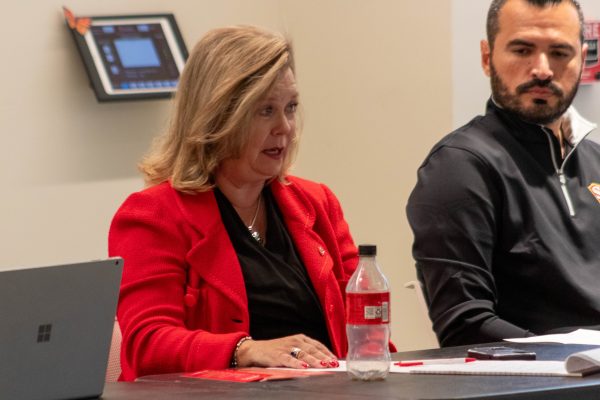
Regarding increasing enrollment, the President talked about a recent meeting she had with the Long Beach School Board, where the board’s representatives said they would go back and convince the district to fund buses to Stan State so that their students could tour the campus.
She mentioned that Long Beach’s local colleges and universities are accepting fewer applicants, making Stan State an appealing alternative.
Senate Approves New Degree Pathway for a Master of Science in the Biological Sciences
In the previous Academic Senate session on October 22nd, Grad Council Chair Suzanne Whitehead introduced this resolution to make the Master of Science in the Biological Sciences a permanent program at Stan State as a first-reading item. This is after the MS has spent five years as a pilot program.
Whitehead described the program as a two year graduate program in Biology that ends in a research-driven thesis project.
Senator Michael Fleming, speaking in favor of the resolution, reported on the robust research in this program is engaged in, with students going to national conferences and conferences abroad to present their work, and also producing publishable data.
“I can’t believe it’s 2024 and we’re just now starting to make this pilot program permanent,” said Senator Keith Nainby, speaking in favor of the program, commenting on the university’s proclamations that they care about sustainability and eco-friendly practices.
In today’s session, Ryan Stanfield, acting as a Proxy Senator, supported the implementation of this degree pathway, mentioning that there are 240 available jobs in the surrounding six counties that require a Master of Science in Biology, and that there are not enough graduates from the area to support this demand.
The Academic Senate passed this resolution unanimously, and the MS in the Biological Sciences will become a permanent program if it is signed by the President.


